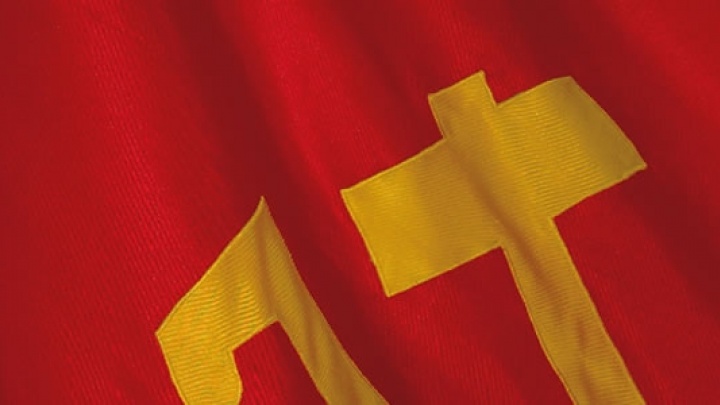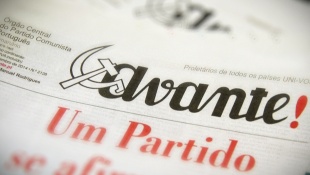Translated "Avante!" article by Jorge Cadima, Member of the PCP International Department
The 15th International Meeting of Communist and Workers’ Parties brought representatives of 77 parties, from 63 countries throughout the world, to Lisbon, last weekend.
During two and a half days, our country was the stage of problems’ descriptions and of peoples’ struggles, the multiple aspects of the great capital offensive, the devastating effects of the capitalism crisis, the experiences, parties’ setbacks and advances, born with the purpose of organizing the workers’ and peoples’ struggle, along with conducting them through paths which will drive them unto the building of the unique real alternative to the capitalist system: socialism.
The Meeting reaffirmed the diversity of realities amid which the Communist and Workers parties struggle. Parties that struggle in the underground, suffering terrible persecutions. Others are in power, or in governments, confirming their will and determination to build socialism. Others are, that, over passing numerous obstacles of economic, political, financial, ideological and organizational nature are, amid their own countries, the main organizers of the mass struggle. And others which seek to recuperate from defeats, liquidations or even weaknesses during these last two decades. Parties that struggle in countries with a poor economic development level, and others which move within the planet’s greatest economic powers. And still, others that struggle for national and social liberation in occupied countries or under foreign domination, and even others which operate in the main imperialist centres.
But if diversity of contexts, amid which the Communist and Workers’ parties operate, is enormous, their struggle ideals and objectives are common. And common is the enemy - the exploitation capitalist system of man by man. And in the majority of cases, common are the current trends. From the many parts of the world, reporting from the brutal offensive against workers, their salaries and pensions, the labour and social rights, achieved during the XX century, arrives , under the decisive effect of the socialist and national-liberating revolutions. From the many parts, the denouncing of the deep class mark, concerning policies and governments which, at the same time they attack and impoverish workers and peoples, fatten and subsidy the great bankers and capitalists. From many parts of the world, the echoes of the dominant classes growing authoritarianism and repression is heard, and with no knowledge of how to step out from capitalism’s contradictions and crisis, using force in order to impose the exploitation increase and its class domination. More and more, there exist countries devastated by wars, attacks and direct or indirect subversions, perpetrated by the great imperialist powers, to carry out their hegemony - many times through direct and live disputes among them. But there are also many unique experiences of great mass struggles, in these last years. Of victorious resistance. And there are promising and positive experiences, which lead to improvement of life conditions and peoples’ rights, along with the affirmation of national sovereignty before imperialism.
The diversity of situations generates natural and inevitable differences, concerning the definition of the struggle forms and objectives. This does not constitute a problem, since the principles that always ought to preside to the relationship among parties are respected: solidarity, mutual respect, bluntness in discussions, equality, non-interference in internal issues. These are the principles the PCP has always followed, in its bilateral and multilateral relationships. They are the principles that ensure the movement’s unity and reinforcement.
The current world’s reality demands a greater intervention capacity from the Communist and Workers Parties, more acceptance amid masses and a greater role concerning struggle organization. That is what workers and peoples expect from the Communists. And this is our movement’s collective responsibility and duty.

